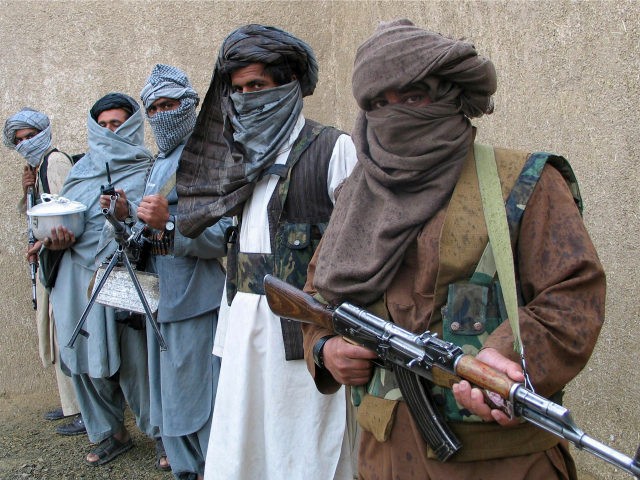An Afghan army commander in eastern Paktia province, near the Pakistan border, has accused Islamabad of heavily arming the Taliban against the U.S.-backed Afghan security forces in areas along the Durand Line, the de facto international boundary separating the countries.
Pakistan is “supplying heavy weapons to Taliban fighters” to combat the Afghan National Defense and Security Forces (ANDSF), which include both police and military units, said Gen. Abdul Wase, the commander of the ANA’s 203 Thunder Corps in the Dand-e-Patan district of Paktia province, reports TOLO News.
“How do they [the Taliban] find weapon[s] in the… [Durand Line]? How are they equipped? How do they find personnel and where are they supported from? Pakistan is simply deceiving the world, but the world knows that [the] Pakistani government is providing all these [components] to the Taliban,” he declared, echoing the Pentagon.
The ANDSF and Afghan civilians have suffered a record number of casualties in recent years, primarily at the hands of the Taliban.
Last week, Reuters learned from anonymous U.S. officials that the Trump administration is considering toughening its approach to combating Pakistan-backed terror groups operating in Afghanistan.
Reuters published its report as the Pentagon once again accused Islamabad of knowingly allowing the Taliban and other jihadists that maintain a presence in Pakistan to plan and execute missions against the United States and its allies in Afghanistan.
Most terrorist incidents in Afghanistan, as well as clashes between jihadist groups and the U.S.-backed ANDSF, occur in areas along the Afghan-Pakistan border, according to the Pentagon.
Moreover, the Taliban controls or contests 35 percent of Afghanistan, and the majority of Afghan districts under the terrorist group’s control are located in the southeastern part of the country that includes the opium-rich provinces of Helmand and Kandahar, the birthplace of the Taliban.
Together, the two adjacent provinces — Helmand and Kandahar — are the deadliest region for U.S.-led coalition forces and their local allies.
Gen. Wase’s comments echoed concerns long expressed by the Pentagon that Pakistan is lending support to the Taliban, the strongest jihadist group fighting against the U.S.-NATO forces and their Afghan allies.
In its most recent assessment of the 16-year-old conflict in Afghanistan, the Pentagon accused Pakistan of serving as a haven for the Afghan Taliban and other jihadist groups.
Even Pakistan ally China recently acknowledged that Islamabad “has influence” over the Taliban, reports Times of India, noting that Beijing has urged the Muslim majority country to rein in the group’s terrorist activities.
As mandated by law, the United States stopped more than $300 million in military reimbursements to Pakistan last year for refusing to take “adequate” action against the Haqqani Network.
The al-Qaeda and Taliban-linked Haqqani Network is considered the “primary threat” to the U.S.-led coalition and their Afghan partners, according to the Pentagon.
Military and other Pentagon officials have accused Pakistan of sheltering Haqqani Network jihadists.
The U.S. “has obligated nearly $30 billion… in taxpayer money for security and economic aid to Pakistan” since the war in Afghanistan started in October 2001, revealed the National Defense Authorization Act (NDAA) of 2015.

COMMENTS
Please let us know if you're having issues with commenting.